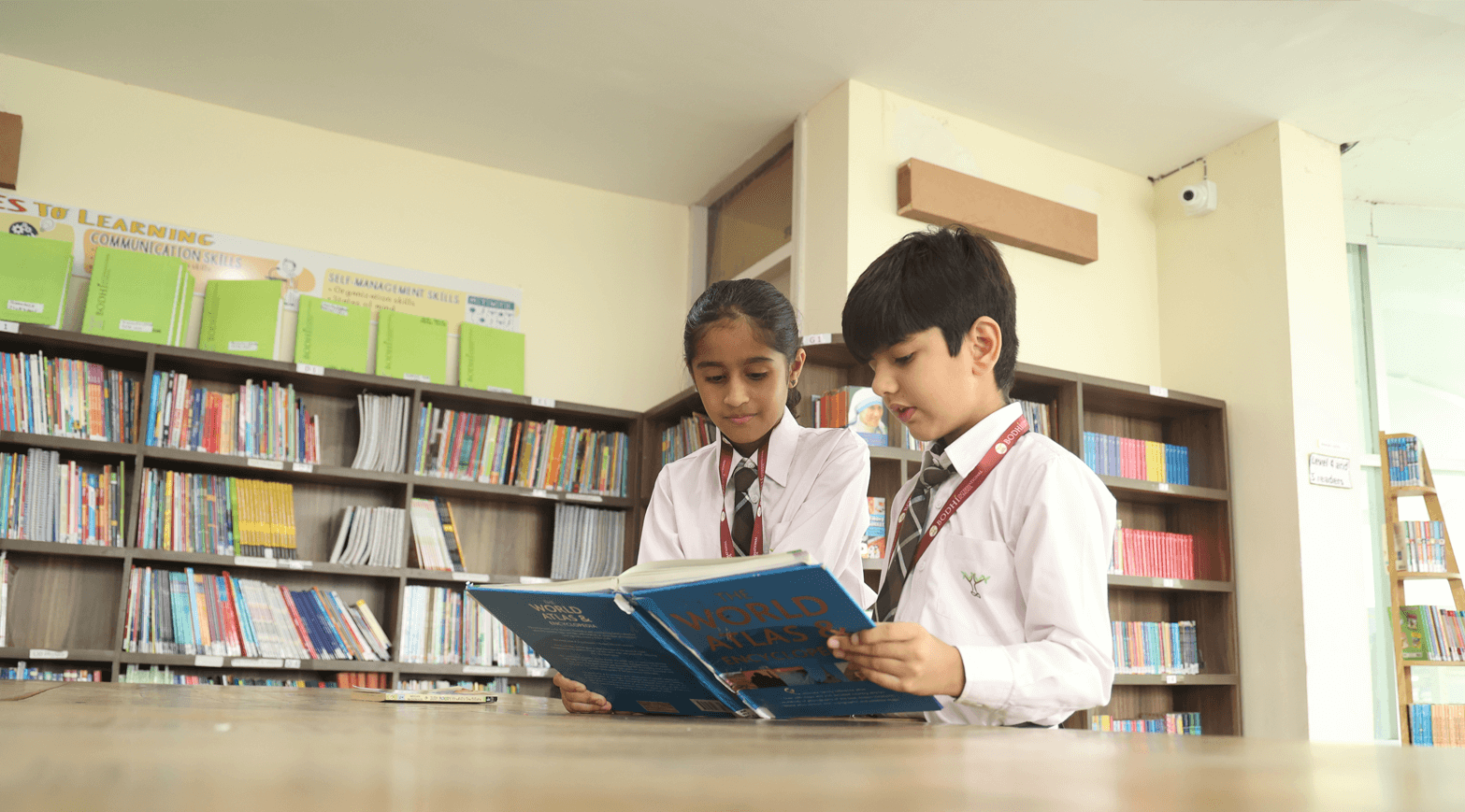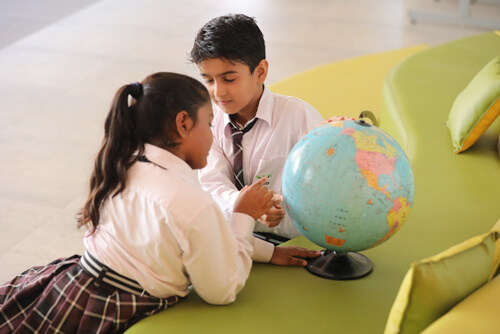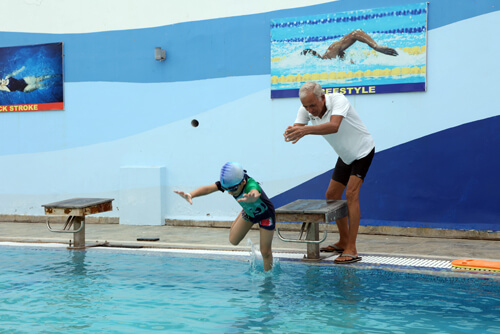IB programmes aim to provide education that enables students to make sense of the world’s complexities by equipping them with skills and dispositions needed for responsible future actions. The programme spans disciplinary, cultural, national and geographical boundaries, and champions critical engagement by stimulating ideas and meaningful relationships.
The Primary Years Programme (PYP) offers a transdisciplinary, inquiry-based and student-centered education with responsible action at its core, enabling students to learn between, across and beyond traditional subject boundaries. In the PYP, students explore six transdisciplinary themes of global significance: Who We Are, Where We Are in Place and Time, How We Express Ourselves, How the World Works, How We Organize Ourselves, and Sharing the Planet.

The framework plays a vital role in structuring the curriculum, providing a comprehensive guide for achieving authentic, conceptual, and inquiry-based learning experiences that actively engage PYP students in a challenging and relevant manner. In the PYP, knowledge, skills, concepts, dispositions, and action are interconnected elements, forming the foundation for our schools to craft a meaningful curriculum that nurtures the holistic development of students and equips them to become lifelong learners. This integration, along with the cultivation of the learner profile, ultimately leads to the cultivation of international-mindedness.
Through the program of inquiry and reflective practices, PYP students systematically acquire knowledge, develop a conceptual understanding, hone essential skills, and embody the attributes of the IB Learner Profile. Guided by age-appropriate learning theories, a strong emphasis is placed on collaborative inquiry and integrative learning, empowering students to explore their curiosity, express their unique voices, and make valuable contributions to their educational journey.
At Bodhi International School, our primary focus is on putting students at the heart of our educational approach. We tailor our methods to align with the needs, characteristics, and overall well-being of our youngest learners.
We take great pride in being the sole IB Primary Years Programme (PYP) school in Jodhpur. The IB PYP embodies our vision of nurturing globally minded students who can come together to contribute to a more harmonious world. Starting from the tender age of 3, the IB Primary Years Programme (PYP) guides children in their journey to become active and engaged learners. Our curriculum is designed to ensure that learning is not only captivating but also meaningful, challenging, and pertinent to their development.
Our PYP curriculum model is grounded in our unwavering belief in the constructivist approach, recognizing that learners shape their understanding of the world based on their experiences and prior knowledge.
Rather than focusing solely on WHAT we teach, we emphasize WHO we teach. This approach allows us to cater to each student's unique needs and cultivate a love for learning. We wholeheartedly support and celebrate their efforts as they work towards realizing their intellectual, cultural, social, and physical aspirations. This prepares them for a lifelong journey of curiosity and engagement within and beyond the confines of school.
Our commitment to the process of Inquiry permeates every subject area, encouraging students to ask questions, nurture their curiosity, investigate, and gain a profound understanding of the world and its people. They also develop an awareness of how they can respond to the shared concepts they encounter.
This philosophy is integrated into a transdisciplinary teaching framework, ensuring that students acquire the essential understandings of Key Concepts and Approaches to Learning (Skills) at each stage of their education.
Our foundation for learning across various key areas is built upon high-quality instruction within a well-defined and rigorous Academic Programme.
At Bodhi International School, we also place significant importance on student agency and personalized learning, which are fundamental aspects of our teaching programs. Collaboration between specialists and classroom teachers allows for the seamless integration of specialist areas, offering a diverse range of learning experiences in Sports and Physical Education, Dance, Music, Visual Arts, and French.
The PYP exhibition is a significant event that allows students to showcase their comprehension of real-life issues or topics they have studied. It serves as an excellent platform for students to reflect on their entire learning journey while honing their presentation and assessment skills.
The transdisciplinary model extends across all three pillars of the PYP curriculum framework - the learner, learning and teaching, and the learning community.

Describes the outcomes for individual students and the outcomes they seek for themselves (what is learning?)

Articulates the distinctive features of learning and teaching (how best to support learners?)

Emphasizes the importance of the social outcomes of learning and the role that IB communities play in achieving these outcomes (who facilitates learning and teaching?)
Agency and self-efficacy play a pivotal role in the Primary Years Programme (PYP) when it comes to fostering a rich learning experience. Throughout the program, students become active agents in their own learning journey as well as facilitators of learning for others. They steer their educational path with a profound sense of self-identity and self-confidence, while collaboratively creating a sense of community and heightened awareness of others' opinions, values, and needs.
At the heart of student agency lies the concept of action, which is an indispensable component of both the PYP learning process and the program's ultimate goal of promoting international mindedness. By engaging in individual and collective actions, students not only grasp the responsibilities linked with being internationally minded but also come to appreciate the advantages of collaborating with others to achieve a common purpose.
Design Thinking in PYP:
Information Technology and STEAM-based activities are woven throughout learning to develop computational and engineering skills. BIS supports the school in further integration of technology as learning about and learning through technology, in addition to tinkering, coding, and making.
Authentic integration of the design thinking process throughout learning and teaching enhances cognitive and meta-cognitive skills. All lessons are co-taught with a gradual release of responsibility as teachers felt more comfortable with the technology and in supporting their learners’ agency.
This is beyond the classroom and a range of learning spaces contribute to the effective development of cognition. A dedicated Teacher Librarian helps to encourage a love of literature.
The Enrichment Team provides integrated, small group support that addresses the diverse academic needs within the context of the classroom environment.
Is dynamic and varied, catering to the learning capacities and talents. The program is constantly evolving to allow student agency to steer the options on offer.